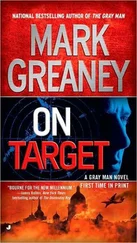Director Hwang Min-ho still could not believe he was leaving his country, even if it was just for twenty-four hours. Virtually no regular North Koreans ever set foot abroad, and even very few high-level government officials earned the opportunity. North Korea is as close to a closed society as exists in the world, and the government-imposed sheltering of its people from the outside world was a key component to the nation’s ability to control the message to its citizens.
But Ri had orchestrated this trip; he’d arranged the travel for Hwang and himself and a total of nine of their translators and assistants, and he’d smoothed out the highly unusual situation with the Ministry of People’s Security. A nation that regards unauthorized departure as an act of treason punishable by death clearly took foreign travel seriously, so Ri and his office had a lot of hoops to jump through to make this all happen. He forced his way through much of the bureaucracy by invoking the fact he was on an approved operation of the Dae Wonsu. He had, in fact, gone as high as Choi’s office to get approval for the travel, and only after a few days of meetings with security men, meetings where General Ri and Director Hwang were asked personal questions to vet their commitment to the Supreme Leader, were they finally allowed the opportunity to go abroad, and only then in the presence of several domestic security agents posing as subordinates.
In Hwang’s case it was a truly rare occurrence that such a high-ranking mineral executive would fly out of North Korea without being part of some sort of organized delegation replete with state security officials sent along to watch over him, lest he either be kidnapped by the West or, and all knew this would be more likely, attempt defection.
And as uncommon as it was for Hwang to travel abroad, the fact that General Ri was outside North Korea at all was utterly unheard of.
But Ri made it happen. The men were supremely motivated by the threat to their own lives if this operation did not succeed; ergo, the men had torn up the rule book.
After a call came through the radio of an airport official, the entire group filed down a back stairwell of the terminal to ground level, then they took a rickety bus ride out to a Tu-134 twin-engine jet painted in the red, white, and blue markings of Air Koryo, North Korea’s national carrier.
Hwang felt his legs shaking as he climbed the jet stairs. It was not from excitement—this was no thrill that he was getting to visit outside his country—this was real fear. He’d lived fifty-four years hearing stories about the outside world, all of them bad. There was a statue in his hometown showing American GIs spearing a screaming Korean baby with a bayonet—foreigners were evil—and the disease and rampant crime and moral and physical decay of South Korea and Japan were legendary.
He had spent the evening before holding his wife and children, fighting back tears, and telling them to be strong and have faith in the Dae Wonsu should he never return.
On board he had his choice of seats. The plane could accommodate up to eighty, and there were only sixteen on the flight. He strapped himself in next to Ri and sat silently, his hands trembling, thinking about the prospect of what he would face when they landed.
They took off toward the south and the aircraft climbed into the morning fog, and Hwang did little more than nod as Ri began discussing his strategy for the meeting later in the day.
Four hours later Hwang was deep into his work and past the terror of the unknowns of the trip. He barely looked up from his paperwork as the aircraft landed in Vientiane, Laos, to refuel and to obfuscate the origin of the flight. Within half an hour they were back in the air.
They landed a second time in Singapore during a mid-afternoon rain shower, and here they were met by local operatives of Ri’s intelligence service and driven to the Mandarin Oriental hotel.
Hwang Min-ho could not believe his eyes when he saw the opulence and grandeur of the lobby. As one of a rare few of his countrymen who had actually seen the inner sanctum of Residence No. 55, he could say without reservation that this hotel was even more luxurious than the palace of the Dae Wonsu. As confused as he was by the riches on display, available, apparently, to regular businessmen and not just to government elite or royalty, he noticed Ri felt the same way. He could tell by the wide eyes and sideways glances of the general that he had never seen anything like this, either.
Neither man remarked on the amazing facility as they took an elevator up to the presidential suite. At their sides were domestic security agents, and both men knew they were being watched to see how they reacted.
In the hallway on the top floor of the hotel, four physically fit men in suits greeted the entourage from North Korea. The translator for the Hwang–Ri group, a middle-aged North Korean woman, spoke in English to the men, and then everyone stepped into the 2,500-square-foot presidential suite.
Hwang and Ri both smiled at the sight of the man they’d come all this way to meet. Óscar Roblas de Mota cut an impressive figure. Seventy-three years old and heavyset, he was nonetheless surprisingly fit and his hair dye, though fooling no one, at least gave him the appearance of vibrancy. He stood a head higher than Ri, and even taller than Hwang, and he wore a beautiful black three-piece suit from Savile Row. He stood at the floor-to-ceiling windows, but spun toward his guests and walked to them with an energetic spring in his step.
He spoke with an air of unbridled competence and power, introducing himself to both men as if they were fans in line for an autograph instead of two of the most important officers of a nuclear power.
But that was Roblas’s way. Some successful men never do develop personalities fitting of their accomplishments, but Óscar Roblas was a winner, and he damn well knew it.
Roblas was the third-wealthiest man in Mexico and ranked number twenty-eight on the Forbes list, with personal and familial assets to the tune of $24 billion. He didn’t start out with nothing, though the narrative his company propagated had pushed that history for the past thirty-five years. The truth was that his family made its money in copper mining going back three generations. The Roblas family company, Grupo Pacífico, still mined copper and zinc throughout the nation, but they’d made money in oil, leasing land for drilling across Mexico, and then Óscar Roblas had created exponential growth for himself by expanding to mineral mines around the world by using offshore companies and limited partnerships.
He owned or had owned dozens of mineral mines on all points on the globe: part of a titanium mine in Mozambique, diamond mines in Botswana and Sierra Leone. Gold, copper, zinc, and nickel mines in a dozen countries.
With his vast wealth he had the ability to create companies and even banking institutions out of thin air to keep the money trails of his endeavors hidden. Hwang knew of Roblas because Roblas had partnered on North Korean mines in the past, albeit on a scale a small fraction of what Hwang would propose at today’s meeting.
The men all sat down at a large conference table brought up to the presidential suite just for the meeting, and after one of the North Korean state security men scanned the room for listening devices with a small apparatus, Roblas began the conversation with an uncomfortable question that was conveyed first in English, and then in Korean through the translator.
“And how is former director Kim?” Roblas asked. “I enjoyed working with him in years past on the magnesite project in Daeheung. I found him to be a capable man. Mr. Hwang, I understand you replaced him as director of Korea Natural Resources Trading due to ill health.”
Читать дальше












